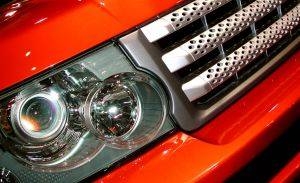
Horsepower capabilities on the Ranger have improved dramatically since the vehicle's introduction. Initially, the vehicle came with an 80-horsepower, 2.3-liter four-cylinder engine. Each year's models have steadily improved, with the 2009 Ranger offering a powerful 4.0-liter V6 engine with an impressive 207 horsepower. There is still room for improvement, and greater horsepower capabilities can increase not only your truck's performance, but its fuel economy as well.
Use high-quality motor oil in the correct grade. 5W-20 is the correct grade for most Ford Rangers.
Have the air filter replaced with a high-flow air filter, such as a K&N performance filter. Different models are available for different Ranger models and years. These allow greater air flow while properly filtering air.
Replace the oil filter with a high-quality filter that provides higher oil flow rates. K&N offers good oil filters for Ford Rangers.
Use the recommended gasoline to increase compression in the engine and improve performance. Regular unleaded is the optimum gas for most Ford Rangers.
Have a Motorvac service performed at your local mechanic shop. This cleans out the engine and helps your engine performance at its highest ability.
Have the camshaft replaced to increase the compression ratio. Crane cams, Compcams and Camcraft all offer camshaft upgrades for Ford Rangers.
Have the air intake system upgraded. Better piping will reduce air resistance and improve engine performance. K&N's cold air intake systems are best.
Upgrade to a larger muffler that allows air to flow out of the Ranger more easily. Your mechanic can choose a muffler that is the best fit for your model and year, but Flowmaster makes high-quality mufflers for all Ford Rangers.
Have the exhaust pipe enlarged to reduce air resistance and pressure when air leaves the engine.